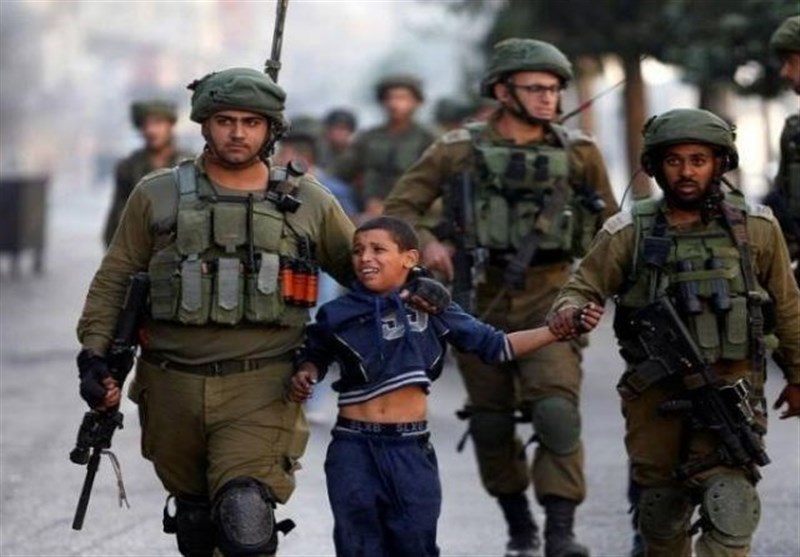Israeli Knesset’s Decision to Imprison Palestinian Children Until Age 14: A Crime Against Humanity and a Clear Violation of International Law
In a controversial move that starkly reflects a worrying detachment from humanitarian values, the Israeli Knesset has passed a law permitting the detention of Palestinian children in special facilities until they reach the age of 14, at which point they are transferred to adult prisons. This decision is part of a series of legislative measures and practices adopted by Israel against the Palestinian people, rising to the level of crimes against humanity and alarming the international community.
This law not only contradicts ethical standards but also violates numerous international agreements on human rights and child protection, presenting a new challenge for the international community to exert pressure on Israel to halt such violations. In this article, we will explore the dimensions of these violations, their breaches of international law, and the legal avenues available for challenging such policies.
First: A Clear Violation of the Convention on the Rights of the Child
The Convention on the Rights of the Child (CRC), ratified by Israel in 1991, serves as the most significant global framework for protecting children’s rights. It clearly mandates the protection of children from violence and harsh treatment, stipulating that their detention should be a last resort and only for the shortest appropriate period. Article 37 of the CRC prohibits subjecting children to torture or cruel treatment and prescribes that detention conditions must be age-appropriate and conducive to their development.
The Israeli law, which enables the imprisonment of Palestinian children until they are 14 and later transfers them to adult prisons, is a blatant breach of these principles. Instead of safeguarding these children, Israel subjects them to severe psychological and physical suffering, leading to long-term consequences that impact their reintegration into society.
Second: A Breach of the International Covenant on Civil and Political Rights (ICCPR)
As a signatory to the ICCPR, Israel is bound to uphold the fundamental rights of all individuals under its jurisdiction, including Palestinian children. Article 10 of the ICCPR mandates that prisoners be treated with dignity and humanity and requires the separation of minors from adults, ensuring conditions appropriate for their age and needs.
The Knesset’s law clearly contravenes these principles, placing Palestinian children in environments unsuited to their needs and later transferring them to adult prisons where they endure harsh detention conditions. This practice constitutes a grave violation of Israel’s obligations under the ICCPR, showcasing its disregard for the rights of juvenile detainees.
Third: Contravention of International Juvenile Justice Principles
The United Nations has established numerous principles guiding juvenile justice, including the “Beijing Rules” and the “Havana Rules,” which advocate for non-custodial measures for children and oppose imprisonment as a punishment except in exceptional cases. These principles aim to protect children and prioritize rehabilitation over punitive measures.
Israel’s policy allowing for the detention of Palestinian children clearly contravenes these principles, demonstrating a disregard for the humane treatment of juveniles. Rather than adopting a rehabilitative approach aimed at integrating Palestinian children back into society, Israel subjects them to detention at a young age, exacerbating their psychological and social suffering and jeopardizing their future.
How Can Israel Be Legally Challenged?
Addressing these Israeli violations requires multi-faceted legal mechanisms on both international and regional levels, including:
Approaching the International Criminal Court (ICC): Since these actions could amount to crimes against humanity, formal submissions can be made to the ICC for investigation. The ICC has previously initiated preliminary probes into potential war crimes committed by Israel in Palestinian territories, and this investigation could extend to cover crimes against children.
Petitions to the UN Committee on the Rights of the Child: Official complaints can be submitted by states and human rights organizations to the Committee for inquiry. The Committee can issue recommendations or reports condemning Israel’s practices and urging the international community to apply appropriate pressure.
Utilizing Other UN Mechanisms: Platforms such as the UN Human Rights Council can be leveraged to pass resolutions condemning Israeli violations, including appointing special rapporteurs focusing on children’s rights in conflict zones.
Mobilizing International Civil Society: Human rights organizations like Human Rights Watch and Amnesty International have played significant roles in documenting Israeli violations. Expanding support for these efforts with thorough investigations and analytical reports can raise global awareness and prompt governments to take decisive stances.
Diplomatic Pressure: Arab, Islamic, and human rights-supporting nations must use their influence in international forums to exert diplomatic and political pressure on Israel, conveying clear messages to the UN and other bodies rejecting such inhumane laws.
Conclusion
The Israeli Knesset’s decision to permit the detention of Palestinian children marks a stain on the conscience of humanity and a blatant violation of international law and human rights standards. The international community must work tirelessly through legal and diplomatic channels to ensure that the rights of Palestinian children are upheld, reinforcing that children’s rights are not an exception to human rights. This legal battle is long and arduous but is essential to holding states accountable and securing justice for children affected by political conflicts.
To read the article in Arabic click Here
Al Moatasem Al Kilani
An attorney specializing in international criminal law, Al Moatasem Al Kilani is also a certified Trainer of Trainers (TOT) in international criminal law and international humanitarian law. Actively engaged in the fight against impunity for crimes committed in Syria since 2016, he has contributed to numerous cases involving the application of universal jurisdiction across European Union countries.
He holds a Master’s degree in International Criminal Law from Paris and is currently a PhD researcher in Law at the Higher School of International Relations in Paris. His work encompasses a range of cases focused on combating impunity and advancing the principles of transitional justice in Arab Spring countries.



